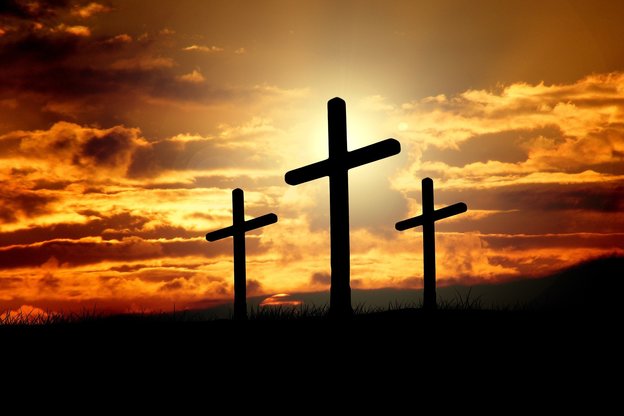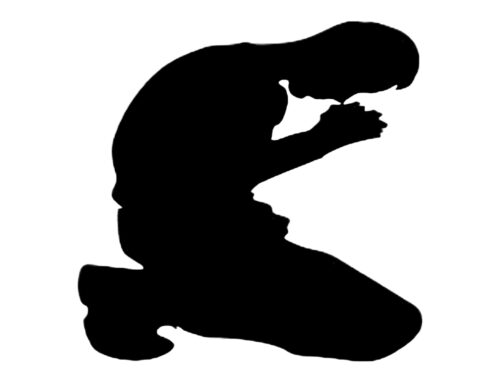As we approach Good Friday, we come to the great theme of the Bible — the blood atonement of Jesus Christ on the Cross. The death of Jesus is mentioned at least 175 times in the New Testament. In Revelation, we are told that the death of the Lamb — Jesus Christ — will be a central theme of the song of the saints in Heaven.
 Why did Jesus come to die? God’s holy wrath rests on sin (Romans 1:18). Humans are guilty, lost, and hopeless in the face of God’s holy law — and that law demands punishment for every sin. The judgment passed on humanity — from the time of Adam to the present — is that of death. Physical death is the separation of the body from the soul and spiritual death is the separation of the soul from God.
Why did Jesus come to die? God’s holy wrath rests on sin (Romans 1:18). Humans are guilty, lost, and hopeless in the face of God’s holy law — and that law demands punishment for every sin. The judgment passed on humanity — from the time of Adam to the present — is that of death. Physical death is the separation of the body from the soul and spiritual death is the separation of the soul from God.
It must be faced squarely — something must be done to satisfy God’s justice and His holy character. Someone must pay for sin. Normally, that would be you and me.
However, Jesus died as a substitutionary offering for sin. “He was wounded for our transgressions; He was bruised for our iniquities” (Isaiah 53:5). First Peter 3:18 says, “For Christ suffered once for sins, the just for the unjust.” He took on Himself the penalty that we should have borne. First John 4:10 says that Jesus died as a propitiation for sin. Propitiation means “to render favorable.” Jesus’ death has God view us favorably and bring us into right standing with Him. In dying for our sins, Jesus brought God and man together in reconciliation.
Here are some results of the blood atonement on the Cross:
• propitiation for the world (1 John 2:2). It is sufficient for all, yet effective only for those who trust in Christ.
• forgiveness of sins (Ephesians 1:7). When we trust Christ, our sins are no longer counted against us.
• justification (Romans 5:9). This means that God declares us right with Him.
• our own resurrection (1 Corinthians 15:22).
• sanctification. When Jesus died on the Cross, He made it possible for believers to become godly, freeing us from the power of sin (Romans 6:11).
• eternal life.
Jesus is the Saviour. He demonstrated God’s power when He rose from the dead, and that the Father accepted Jesus’ death in the place of sinners. That death brings a full, free pardon to all who trust in Christ alone.
Ultimately, God’s Word tells us that He is creating, for His glory, a “church, not having spot or wrinkle or any such thing, but that she should be holy and without blemish” (Ephesians 5:27). The Cross was the means for this. It satisfied both the need to honor God’s justice and His great love.
Could my tears forever flow, could my zeal no respite know,
This for sin could not atone, Thou must save, and Thou alone:
In my hand no price I bring, simply to Thy cross I cling.
(Augustus Toplady, 1776)
Craig Alan Myers – CBC Executive Board member




